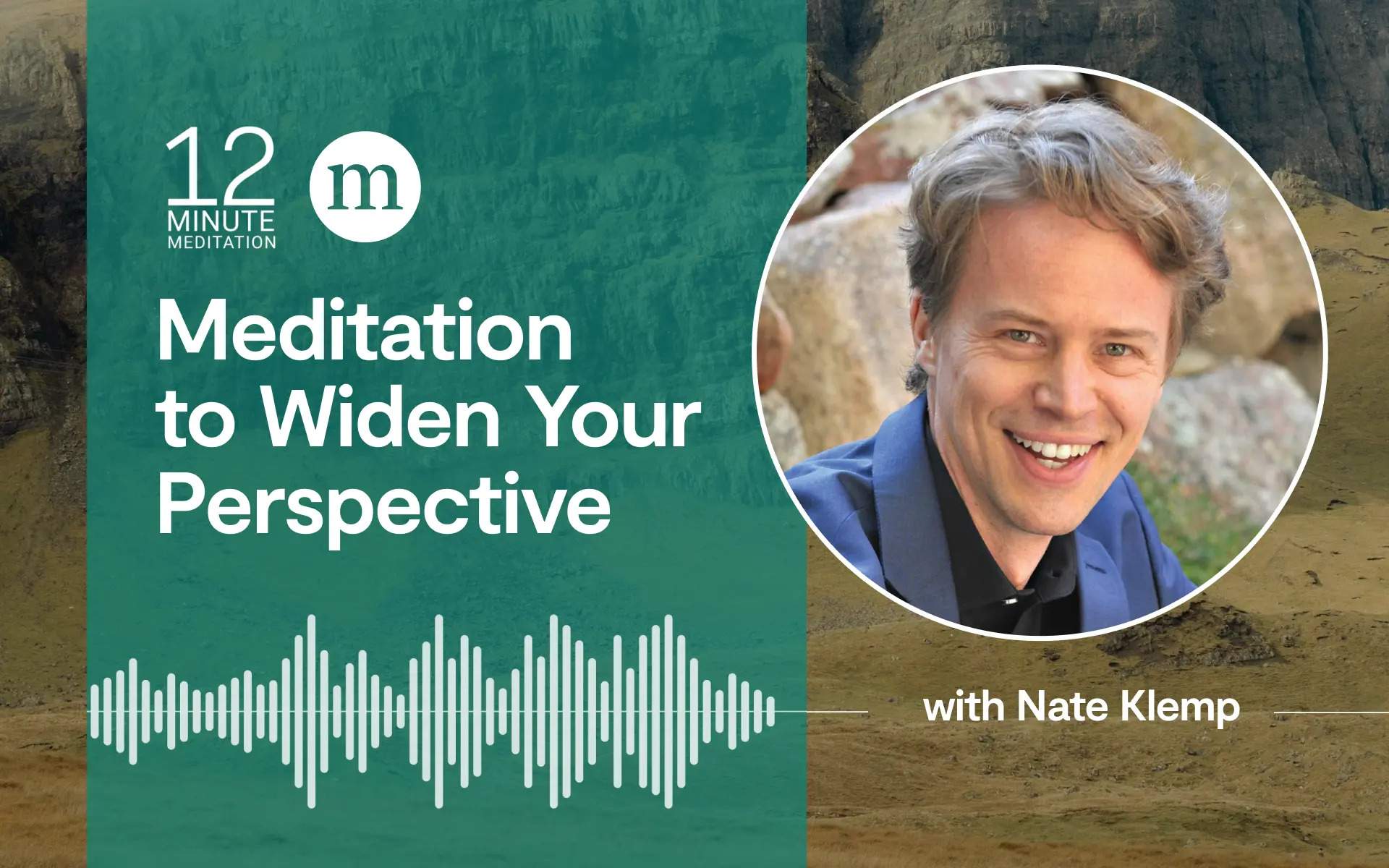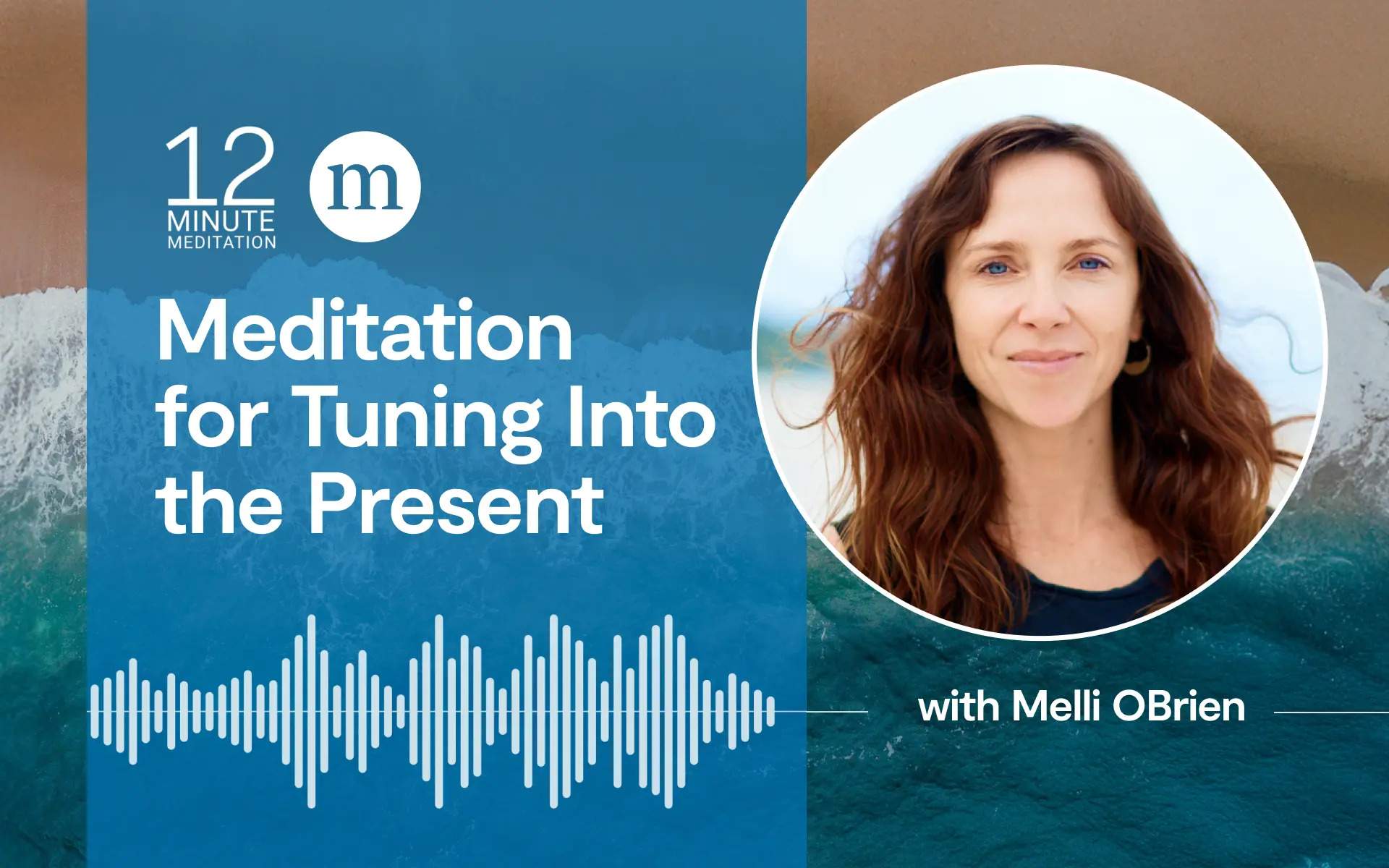Episode 3 of Point of View with Barry Boyce, Editor-in-Chief of Mindful Magazine, and Heather Hurlock, Senior Editor-Digital at Mindful.org, explores silence and spaciousness. We live in an age where most of the physical spaces we inhabit are intruded upon by various devices, all vying for a bit of your attention. In fact, your attention is actually traded as a form of currency these days on social media. People get “paid” in audience and “views,” meaning eyes on content. All of this makes seeking out solitude and creating space for yourself a very radical act.
HH: Barry, how can people begin to carve out a little silent space for themselves?
BB: You have this kind of language that people use sometimes of “leaving some space,” you need to “give it some space.” It sounds kind of woo woo and odd. But what it very simply refers to is loosening up a kind of mental claustrophobia that we have where we are trying to pack so much in. If we have an experience we feel we automatically and quickly need to figure out whether it’s good, bad, or ugly. If we give it some space that means we’re allowing some uncertainty. We’re allowing some gaps in the conversation. So, if somebody says something, you don’t automatically have to jump on it and respond and have it all figured out. You can leave a little bit of room for reflection.
HH: So, the pause is important, not only in terms of when you sit down to meditate, but also as you interact with people throughout your day.
BB: Silence in meditation has an aspect of reducing the number of inputs that we are bombarded with. Silence is also about not having the need to speak. We talk so much and in our lives, and talk is so much of our life, that to have a little break from that, where we don’t have to fill up the space with our own words, can actually be a bit of a relief.
HH: So, it’s sort of like turning down your “performer self” so you can hear what is actually going on around you?
BB: Removing the pressure to have to say something all the time, to have to comment and fill up the space with your own speech, you find you begin to notice people more. And you notice your surroundings more. And you notice how your verbal output is so often framing and shaping what you’re experiencing. When you take a break from that, you get a chance to see what we often call “a more spacious world.”
HH: So, basically, this is a polite way of telling people to shut up and meditate. I see where you’re going with this.
BB: If you are talking or listening to someone talking, you’re, you might say, filling up the mental space, the mental space is filled with something. If you aren’t doing that, and you’re sitting there with just a simple task of attending to your breath, you begin to notice your thoughts—whereas so often we are so caught up in the chaos and the noise that we don’t notice our thoughts forming and we don’t notice the effect that those thoughts can have.
So, if we’re meditating in silence and thought emerges: I really wish my son wouldn’t leave big messes in the kitchen, it really ticks me off… You can start noticing irritation and anger forming. And you can notice that and go back to the breath. But you have noticed it. Because the silence has given you an opportunity to tune into that channel. Having noticed it you don’t need to write a dissertation about it or make a big deal about it, why am I having such thoughts what am I going to do about it? You can just let it be there.
One of the great values of meditation really, is to punctuate our life with pauses and gaps and periods of openness, where we’re not trying to fill up the mental space, but we’re just seeing what happens next.
HH: Sometimes silence can feel really uncomfortable, it can make you feel restless. How do you get past that?
BB: If you go on a meditation retreat, which could be a half day or a day or a few days or longer a week or more, and in most retreats there’s at least some period of total silence. It might be a day it might be an entire week even of total silence. Now, usually there’s some kind of guidelines that you use talking when it’s functional and necessary. So if you cut yourself and need to go seek help, certainly you talk. But in general, if you are leaving the meditation area and going to get some food you simply line up and get your food and eat your food in silence. And interestingly, at first people think this is very weird, because imagine if you went into a restaurant and nobody was talking. There’s 60 or 70 people in the restaurant—couples, groups of four and five, and nobody’s talking. Now, that would be pretty weird. You’d think you were in some kind of zombie movie or something. In fact sometimes people who have gone on a meditation retreat for the first time say, “Wow it’s like everybody is a zombie” because they’re not talking. But usually most people, after a period of time, come to appreciate the silence.
HH: So, practice is the only way to get comfortable with silence? But do you think that tuning things out, purposefully tuning out the world, can lead you to be disconnected with the world around you? Do we run the risk of turning people into zombies, silent smiling zombies, by advocating for meditative silence? I guess what I’m asking is, is silence healthy for building relationships with the people and the world around you?
BB: Silence can actually change the way you communicate a bit. It can change the way you hear. It can change the way you think even a bit. Because silence, and the punctuations between the content, can be as interesting as the content itself. In writing, good writers know that rhythm is the key to beautiful and effective writing. And it has a lot to do with how you punctuate. So, one of the great values of meditation really, is to punctuate our life with pauses and gaps and periods of openness, where we’re not trying to fill up the mental space, but we’re just seeing what happens next.








